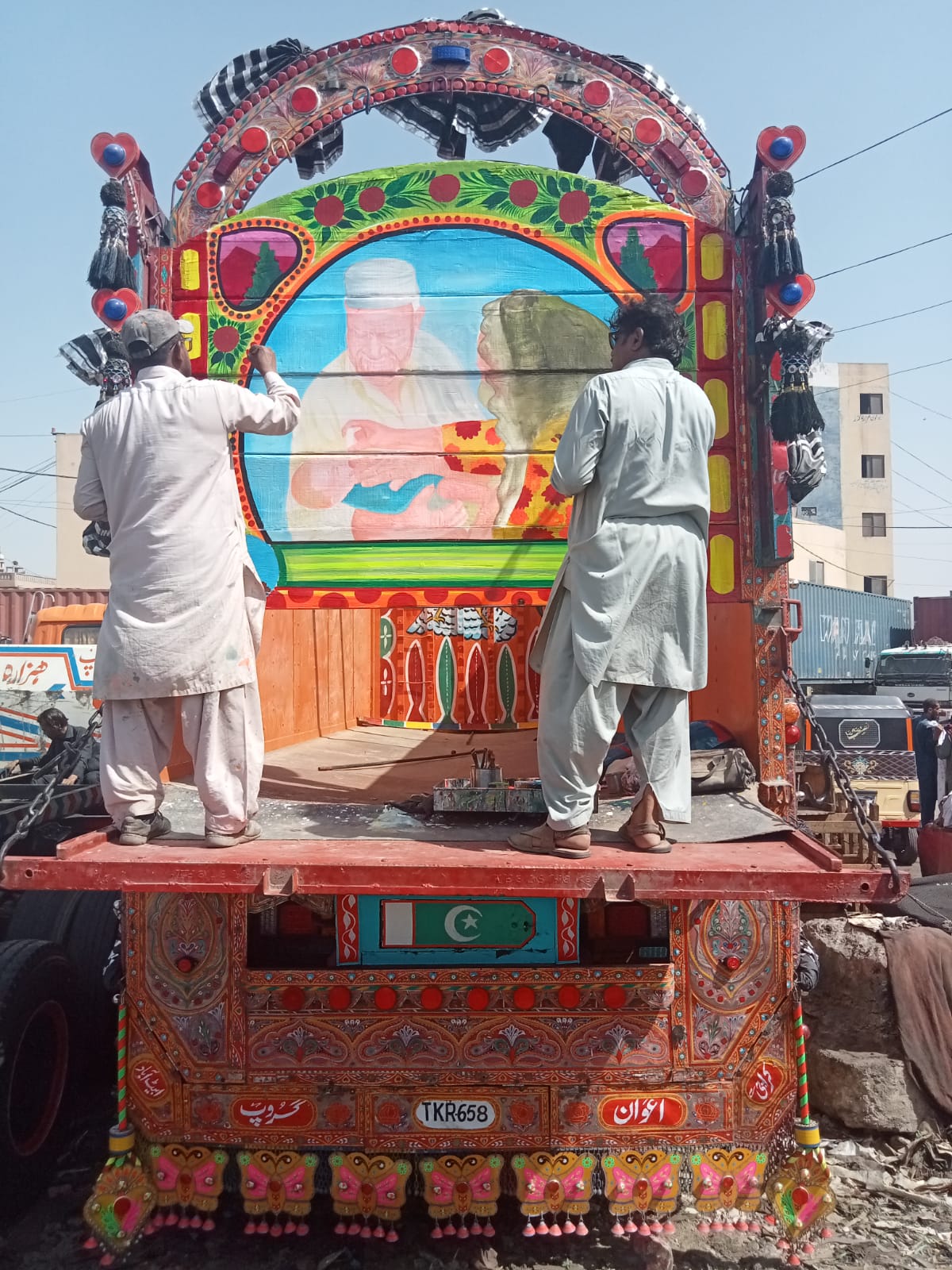South Waziristan considered poliovirus epicenter, with 16 cases reported among children last year out of a total of 20 in South Asian nation.
Pakistan is using its famous truck art to ramp up an ongoing countrywide anti-polio campaign aimed at achieving a long-desired polio-free status for the South Asian nuclear nation.
Being one of the best cultural exports in recent years, the truck art has hit the galleries from North America to Europe, prompting stores to sell miniatures.
Elaborate and flamboyant designs, blended with cultural, sports, and political themes, have long been an essential part of goods transport, mainly trucks, which run from the southern port city of Karachi to the faraway northwestern Afghanistan border, and to the northern Gilgit-Baltistan region near China’s frontiers.
He told Anadolu that the trucks are carrying the anti-polio message “from mountains to deserts,” focusing people in remote areas where it is desperately needed.
“Truck owners and drivers’ response is very encouraging. They are happy to have their trucks painted with the anti-polio theme rather than pictures of singers, actresses, or political leaders,” Baloch said.
“This is a simple but very effective method of delivering a message to every nook and corner of the country,” he added.
No Polio Cases this Year
The primary objective of using truck art, according to Zulfiqar Babakhel, a spokesperson for the National Emergency Operations Center for Polio Eradication, is to spread anti-polio and pro-vaccination awareness across the country, especially in remote areas by using different themes.
“These trucks travel to every nook and corner of the country, especially in areas where some people are still skeptical about the vaccine,” he told Anadolu.
Pakistan remains under a polio-linked travel restriction imposed by the World Health Organization (WHO).
The UN health agency made it mandatory in 2014 for all those traveling from Pakistan to carry a polio vaccination certificate. The ban has been extended every six months.
So far this year, the country has not reported even a single case, Babakhel said, adding that the last case was reported last September.
However, according to the WHO standards, a country needs to be without a single case for three consecutive years to be declared polio-free.
Last year, the country reported 20 polio cases, including 16 in North Waziristan alone, compared to one in 2021, 84 in 2020, and 179 in 2019.
Surge in Attacks on Polio Workers
The country has seen a surge in armed attacks on polio vaccinators, mainly in Khyber Pakhtunkhwa province, coinciding with the Taliban’s recapture of Kabul in Afghanistan in Aug. 2021.
Some militant groups frequently target vaccinators, particularly in border areas of Khyber Pakhtunkhwa and southwestern Balochistan province.
They see anti-polio campaigns as part of an elaborate anti-Muslim, Western conspiracy and often issue death threats to vaccinators, many of whom are women, for administrating the vital vaccines to children.

A common misconception is that the vaccine is part of a plot to sterilize Muslim children, especially in rural Pakistan.
According to media reports, over 150 people associated with the drive, including security personnel, have been killed in Pakistan since Dec. 2012.
In many areas, Muslim religious scholars in the country dedicate a portion of their Friday sermons to emphasizing the importance of the polio vaccine.
Source : Asia-Pasific















